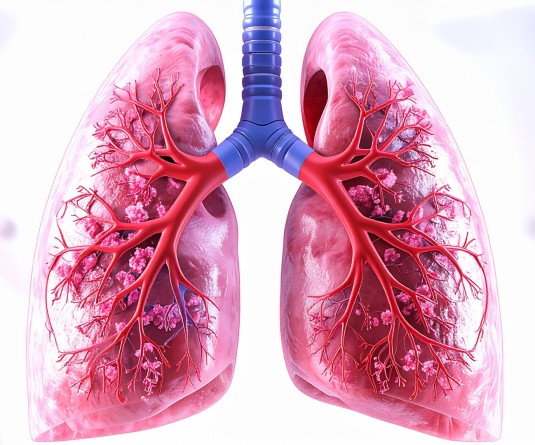Representational Images

March 8 (PTI): Heart failure is the most significant cause of hospitalization and death across the globe, says the World Health Organization. Living with heart failure may at times be fraught with enormous physical and emotional challenges for the patients and their loved ones. The medical fraternity's untiring quest offers hope through advances in medicines and surgery besides patients' all-important element of self-management. Modern medicine places strong emphasis on educating patients and caregivers. One such initiative is the Beat Heart Failure, an initiative by The Times of India in partnership with Novartis that has been running successfully for more than two and half years. The aim is to spread awareness about heart failure pandemic, its treatment and management options.
When a doctor diagnoses someone with heart failure, the patient and their family member experience a rush of emotions of fear, anxiety, and worry presuming that the heart has stopped working and the end of life is near. The word heart failure connotes the gradual weakening of the heart muscle resulting in its reduced capacity to pump and supply nutrient-rich blood efficiently to the various parts of the body. Lack of blood supply results in multiple symptoms and signs, which include shortness of breath, gradual increasing fatigue, swelling of feet and difficulty in sleeping straight at night.
It is difficult to distinguish the symptoms during the early stages of heart failure, and people mistakenly assume these to be respiratory ailments or gastric diseases. The patient can do simple self-checks every day, like monitoring blood pressure, pulse rate to stay ahead. It is also necessary to check pulse rate, which is felt on the wrist just under the thumb. The average blood pressure is 120/80 mmHg. It may be slightly different for different people, but a significant difference in blood pressure should raise the alarm bells.
Heart failure can occur due to many reasons, and the most common causes include any pre-existing comorbidities such as diabetes, hypertension, and obesity. A person having pre-existing comorbidities, but exhibiting no visible symptoms, is already in a risk category of class one heart failure and must visit their physician for periodic assessment and investigations. People with a family history of developing heart failure also have the risk of developing the disease. Kidney diseases, processed food, junk food, and smoking, along with the use of alcohol, are among the risk factors.
One needs to be vigilant to discern the unusual signals emanating from one's body. The patient should self-observe any changes in energy levels or a gradually increasing fatigue that was not felt before. There can be sudden weight changes, including swelling in the ankles or legs. The clothes and shoes start to feel tight. The person notices imprint of socks on their legs. These occurrences signify fluid retention in the body. Therefore, weighing oneself every day is essential.
One of the most common symptoms of heart failure is breathlessness. The person needs to be attentive and watchful to understand whether shortness of breath happens during routine activities or while climbing stairs. The person can also feel breathlessness at night or when lying down straight and waking up suddenly gasping for breath. There may be a persistent cough or a wheeze that may be dry or hacking or wet. If a person has any of these symptoms, it is vital to seek the advice of a physician.
If a person has diabetes or has a risk factor for developing diabetes, he/she should get blood sugar levels examined regularly. It is equally important to monitor blood pressure levels. Doctors recommend getting annual health investigations. These include investigations of blood parameters comprising of lipid profile, sugar levels, thyroid, and others. If any usual changes are noted, then further investigations can be done.
There are some lifestyle modifications for people with heart failure at risk. They comprise healthy behaviors used by persons with chronic illness to maintain physical and emotional sensitivity. It is crucial to stop smoking and alcohol. The patients should restrict fluid and salt intake. When the patient has a nutritional deficiency, they should have a balanced diet, and for further assistance, they should visit a dietitian for diet plans. Timely flu shots are essential to prevent any infection-causing an unnecessary burden on the heart. It is important to maintain an active lifestyle. Various cardiac rehabilitation exercise regimes are recommended for every stage of heart failure. Patients would do well to follow exercise routine scrupulously.
According to cardiologists, to control the progression of heart failure, self-management involving regular monitoring is important. Regular follow-ups and timely taking prescribed medications are the pillars of heart failure management. Heart failure is emotionally exhausting for patients. Visiting a counselor will help them cope with the diagnosis. Remember, heart failure is not the end of life but a chance to live life healthier. Remember, heart failure isn't about stopping. It's about starting life in a new way. To know more about how to manage heart failure, visit www.toibeatheartfailure.com
Disclaimer: The purpose of this article is not to promote any medical procedures or medication and/or recommend a certain doctor. For any specific health issues, please consult your registered medical practitioner. Visitor should exercise caution and rational thinking when reading and implementing the above content. The above content does not claim to cure, prevent, or diagnose any diseases or health conditions.






